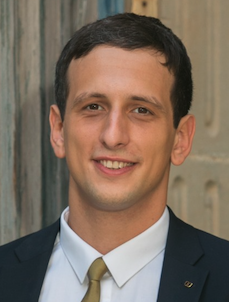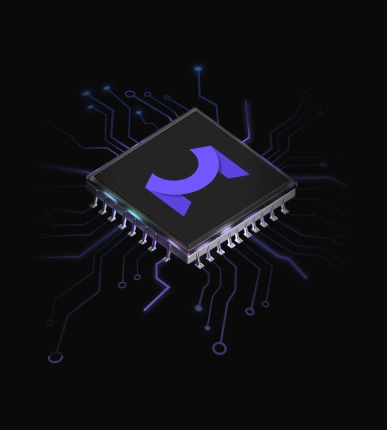MeshLib’s robust 3D Boolean operations—Union, Difference, Intersection—for precision and speed in complex modeling tasks. Great for industries from architecture to manufacturing.
3D Boolean operations matter a lot in software development for modern modeling tools, empowering faster, ever-more productive processing of complex 3D geometries. With MeshLib, these high-powered algorithms integrate easily into any given application. This makes it possible for developers to work with intricate models through combining, subtracting, or intersecting structures with precision. Such streamlined integration simplifies the design work routines, reducing time and data resources required to create complex 3D structures. Hence, the eventual performance across modeling software gets a notable boost.
Whenever it comes to MeshLib, our team supplies a comprehensive suite of Boolean operations for these purposes. That allows users to manipulate and refine their respective specific 3D models across versatile industries. As an outcome, MeshLib’s efficient and dependable Boolean capabilities ensure that your application handles complex 3D data, with both exactness and speed, enhancing the overall user experience.
To begin with, MeshLib provides three principle 3D Boolean operations, shaping the very core of its potent 3D geometry library:
This scenario involves large meshes (2M Triangles each) with complex topology, representing a common challenge in 3D boolean operations.

Union combines two models into a single structure, generating intricate and cohesive 3D geometries. By merging independent components, Union enables one to design complex models, i.e., those habitually used in architectural and product design.

Intersection enables the creation of new models from overlapping sections of two 3D geometries. This precise operation is impactful for assessing shared spaces in assembly designs or crafting cutaway views for sophisticated structures.

Difference is pivotal for creating structures with holes or cutouts. By subtracting one 3D model from another, developers could add negative spaces and precise details. This operation is widely applied in domains like mechanical engineering. There, designing custom-fit parts or complex voids is indispensable for attaining high-quality results.
In practice, MeshLib fuels an extensive range of 3D Boolean operations. We guarantee enhanced control and flexibility, way beyond the standard-level three basic operations. These extended capabilities empower developers to handle intricate 3D geometries with precision, enabling customized designs and properly-structured data processing in sophisticated modeling undertakings.


Operation: Isolates the part of mesh A that is contained within mesh B.
Applications: Ideal for models requiring only intersecting volumes, say, custom-fit components in mechanical engineering.

Operation: Extracts the section of mesh B that lies within mesh A.
Applications: Bearing resemblance to “Inside A,” this operation aids in designing parts that fit within other structures, commonly used in reverse engineering.

Operation: Separates the section of mesh A that lies outside mesh B.
Applications: Helpful for clearing intersecting parts from a stated design, such as creating space for additional components in product design.

Operation: Extracts the section of mesh B that is outside mesh A.
Applications: Ideal for subtractive modeling, allowing structures to exclude specific volumes, similar to “Outside A.”

Operation: Merges two meshes into one unified structure by combining surfaces.
Applications: Commonly used for uniting several coexisting parts into a single model to simplify assembly in manufacturing or for building sophisticated designs in architecture.

Operation: Generates the intersecting surface where two meshes overlap.
Applications: Essential for accurately modeling shared volumes, often applied in mechanical assemblies.

Operation: Subtracts mesh A from mesh B, keeping the exterior of B minus the interior of A.
Applications: Used in mold-making and packaging design, where precise fit within another object is required.

Operation: Subtracts mesh B from mesh A, focusing on the outside of A minus the interior of B.
Applications: Similar to “Difference B-A,” it is essential for subtractive modeling to create negative spaces, which promises a lot in manufacturing processes.
import meshlib.mrmeshpy as mrmeshpy
# create first sphere with radius of 1 unit
sphere1 = mrmeshpy.makeUVSphere(1.0, 64, 64)
# create second sphere by cloning the first sphere and moving it in X direction
sphere2 = mrmeshpy.copyMesh(sphere1)
xf = mrmeshpy.AffineXf3f.translation(mrmeshpy.Vector3f(0.7, 0.0, 0.0))
sphere2.transform(xf)
# perform boolean operation
result = mrmeshpy.boolean(sphere1, sphere2, mrmeshpy.BooleanOperation.Intersection)
if not result.valid():
print(result.errorString)
else:
# save result to STL file
mrmeshpy.saveMesh(result.mesh, "out_boolean.stl")
#include <MRMesh/MRMesh.h>
#include <MRMesh/MRMeshBoolean.h>
#include <MRMesh/MRMeshSave.h>
#include <MRMesh/MRUVSphere.h>
#include <iostream>
int main()
{
// create first sphere with radius of 1 unit
MR::Mesh sphere1 = MR::makeUVSphere( 1.0f, 64, 64 );
// create second sphere by cloning the first sphere and moving it in X direction
MR::Mesh sphere2 = sphere1;
MR::AffineXf3f xf = MR::AffineXf3f::translation( MR::Vector3f( 0.7f, 0.0f, 0.0f ) );
sphere2.transform( xf );
// perform boolean operation
MR::BooleanResult result = MR::boolean( sphere1, sphere2, MR::BooleanOperation::Intersection );
MR::Mesh resultMesh = *result;
if ( !result.valid() )
std::cerr << result.errorString << std::endl;
// save result to STL file
MR::MeshSave::toAnySupportedFormat( resultMesh, "out_boolean.stl" );
return 0;
}
Diving deeper, 3D Boolean operations generally come in two primary types, i.e., Mesh Boolean and Voxel Boolean. Each method possesses distinct strengths and limitations, impacting the quality and performance of 3D modeling initiatives.
Mesh Boolean operations, a key feature of MeshLib, are responsible for focused transformations. They do so by altering the mesh primarily around contact points with other geometries.
High efficiency. Excels in tasks where speed is critical, making it a preferred choice for performance-driven applications;
Precise transformations. Offers targeted adjustments to 3D models around intersecting areas.
Regarding Voxel Boolean operations, they take an alternative approach, transforming 3D models into a voxelized format for Boolean processing.
3D Boolean operations play an essential part across multiple industries, for an obvious reason. Namely, as has already been highlighted, they simplify the creation of complex 3D models. Below, one finds a range of major sectors where 3D Boolean technology enhances design and performance:
This industry relies on Boolean operations for precise subtraction techniques, ensuring each aligner fits the patient’s unique dental structure. Accurate customization is vital for both patient comfort and treatment success;
When injection molding gets involved, Boolean operations assist with creating detailed mold cores and cavities, directly influencing the quality and precision of molded components. This is especially vital in niches demanding high-precision plastic components.
On top of that, we would also specifically highlight the relevance of 3D Boolean technology for:
Wrapping up, MeshLib serves clients as a pioneering 3D geometry library, capable of delivering industry-leading 3D Boolean operations with unmatched velocity and rigorousness. As an open-source solution supporting (both C++, C#, and Python) MeshLib integrates effortlessly into a range of applications, accelerating development and enhancing performance. Equipped with advanced algorithms optimized for complex Boolean models, MeshLib achieves processing speeds up to 10 times faster than comparable libraries.
Our robust 3D Boolean capabilities, reinforced by cross-platform compatibility and a modern, limitation-free design, turn MeshLib into the preferred choice for professionals advancing 3D modeling in aerospace, medical device design, advanced manufacturing, etc.
















MeshLib SDK offers multiple ways to dive in — from live technical demos to full application trials and hands-on SDK access. No complicated setups or hidden steps. Just the tools you need to start building smarter, faster, and better.
